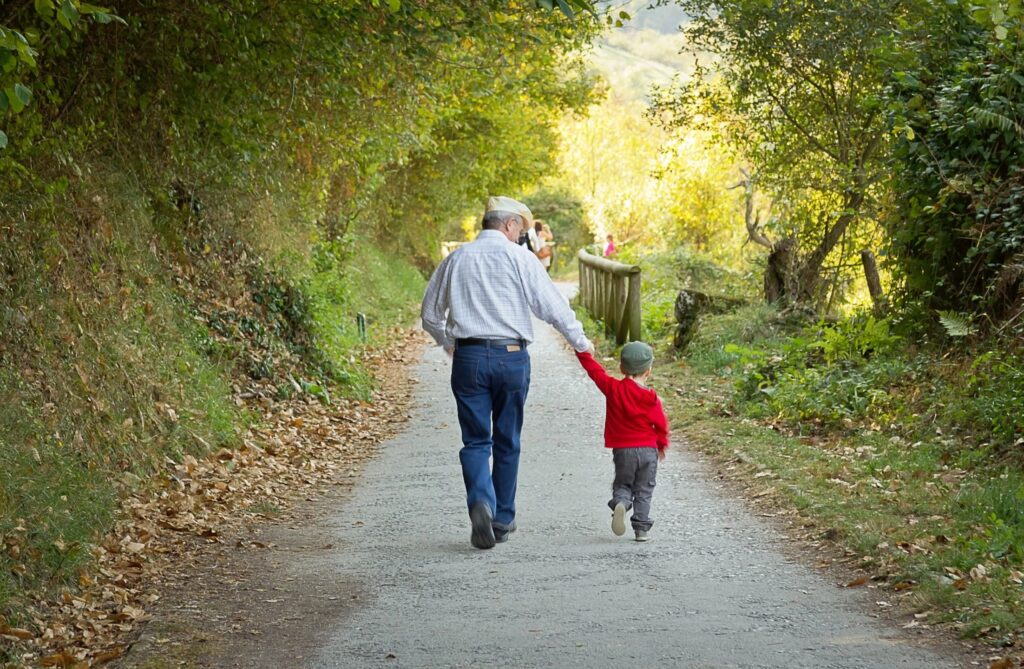Life is a divine mixture of sweet and tragic moments.
Two of my closest friends have walked through some of the hardest moments of life that I have seen personally. Their first two daughters were diagnosed with a condition known as anencephaly. In summary, this means that their children were born with underdeveloped brains and incomplete skulls. This also meant that their daughters were only able to survive a few hours after they were born.
There have been so many tears shed with this sweet family over the past few years, but a few weeks ago, there were different kinds of tears shed.
We were able to stand with them as they held their three-month-old baby boy in the county courtroom and were officially declared by law what was already a reality. They were now parents to this little boy that they had adopted.

As we stood there and listened to the legal proceedings, my mind couldn’t help but begin to wander. I don’t know if the lawyer moonlights as a bi-vocational pastor, but his words were dripping with spiritual significance. Just before the judge declared this boy their son, the lawyer turned and addressed the parents directly:
Today you’re asking the court to add the final order for adoption. If the court enters that order, in the eyes of the law, Jaden will have all of the same rights, claims, and benefits as if he were naturally born. Do you understand? And among those rights and benefits include being a full heir to you.
I heard these words from the lawyer, and I knew he was talking about this baby, but I could only hear him talking about myself.
Saved and Adopted
I was born a spiritual orphan—hungry, crying, and helpless. In fact, it was even worse than that. Paul writes to the church in Ephesus and says that we “were dead in the trespasses and sins” (Ephesians 2:1). This was our condition. We deserved nothing but the wrath of God for our rebellion and for “following the course of this world” (Ephesians 2:2). We “were by nature children of wrath, like the rest of mankind” (Ephesians 2:3).
Before Christ, we were in fact children, but we were children of wrath.
Then something happened.
God reached into our hearts and took that which was dead and breathed life into it.
“But God, being rich in mercy, because of the great love with which he loved us, even when we were dead in our trespasses, made us alive together with Christ” (Ephesians 2:4–5).
But God didn’t just raise us to new life. He could have stopped there and that would have been enough to praise him for eternity, but there was more for him to do.
Not only did this holy God reach down into the depths of his creation to save us, but “in love he predestined us for adoption through Jesus Christ” (Ephesians 1:4–5).
And in that adoption, we now have all of the same rights, claims, and benefits as his Son. What the lawyer said in that courtroom is just as true for us as Christians: “among those rights and benefits includes being a full heir to the Father.”

The Fatherhood of God
Paul writes almost these exact words in Romans 8:16–17: “The Spirit himself bears witness with our spirit that we are children of God, and if children, then heirs—heirs of God and fellow heirs with Christ.”
Stop for a moment and understand the gravity of that reality for your life. If you are a Christian, then God has made you his child.
Packer furthers this when he writes:
You sum up the whole New Testament teaching in a single phrase, if you speak of it as the revelation of the Fatherhood of the holy Creator… For everything that Christ taught, everything that makes the New Testament new, and better than the Old, everything that is distinctively Christian as opposed to merely Jewish, is summed up in the knowledge of the Fatherhood of God. “Father” is the Christian name for God. (excerpt from Knowing God)
The tragedy and beauty of one family can help us remember the truth that we were all once orphans with no hope. But God, being rich in mercy, because of the great love with which he loved us, has made us alive and adopted us as his own. We were all born orphans, but in Christ, we are fatherless no more.
Article written by Caleb Brasher






